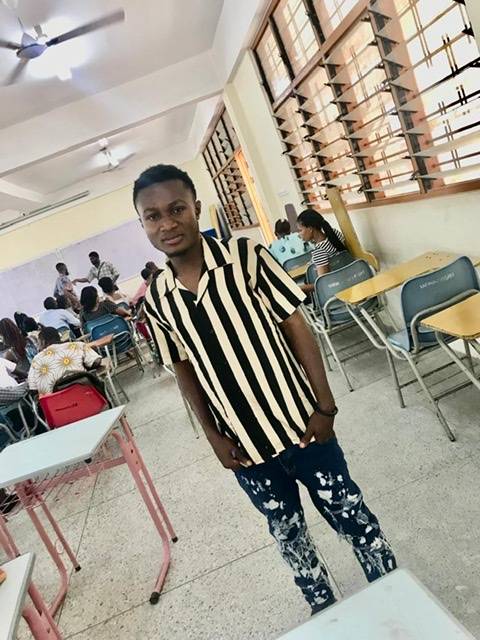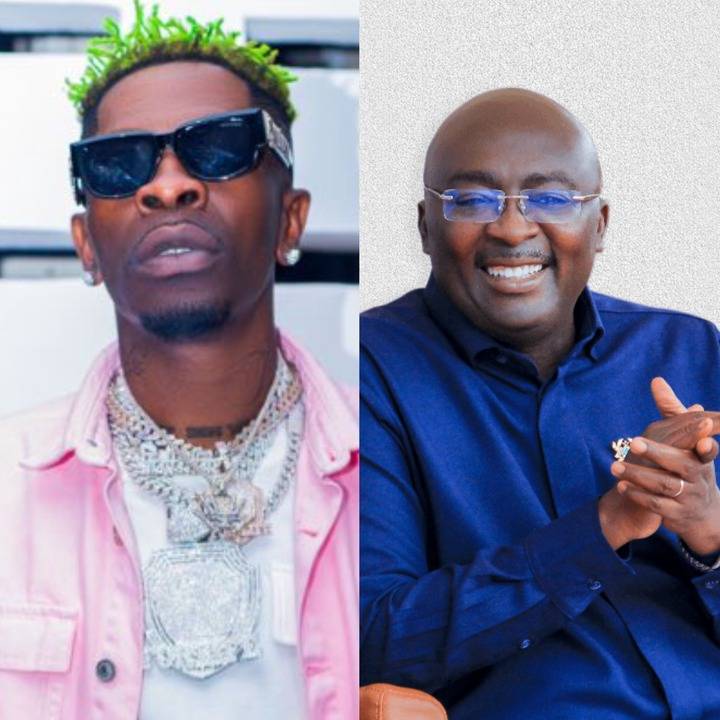Shatta Wale, along with several other prominent celebrities, attended a meeting hosted by Dr. Mahamudu Bawumia with members of the entertainment industry. During this significant gathering, Wale seized the opportunity to engage the presidential candidate, posing pointed questions regarding his policies aimed at supporting individuals living on the streets.
Demonstrating his deep connection to the community, Shatta Wale made it clear that he has not forgotten his roots. He emphasized that he remains committed to advocating for the 'ghetto boys'—those marginalized youth who often feel overlooked by society. This commitment is not merely performative; it stems from his own experiences and understanding of the challenges faced by those in similar situations.
Dr. Bawumia expressed his eagerness to address the concerns raised during the meeting, and Shatta Wale did not shy away from presenting his inquiries. The Dancehall artist showcased his intelligence and thoughtfulness, prompting a crucial dialogue about the future of disadvantaged youth in Ghana. His questions were not just rhetorical; they reflected a genuine concern for the welfare of those who often struggle to find their footing in a competitive job market.
A video shared by Edhub on X (formerly Twitter) captured the moment and quickly gained traction, going viral across social media platforms. In the footage, Shatta Wale stood up and directly addressed Dr. Bawumia, asking, "What are your plans for the 'ghetto boys'?" His inquiry highlighted the plight of many young men who, despite lacking formal education, possess a strong desire to work hard and contribute to society if given the chance.
He elaborated that many of these young individuals face significant barriers when it comes to employment opportunities, especially in sectors like mining and agriculture. Wale pointed out that the lack of education and formal qualifications often prevents them from securing jobs that could provide them with a stable future. He asked, "What is the government putting in place for people like this?" This question resonated deeply, as it underscores the urgency for systemic change to provide pathways for education and employment for the youth.
Furthermore, Shatta Wale brought attention to the societal stigma that often surrounds these 'ghetto boys.' Many of them find it challenging to even apply for jobs due to their inability to present themselves in a manner that meets the conventional expectations of employers. Wale expressed concern that without intervention, these young men would continue to feel trapped in a cycle of poverty and disenfranchisement.
The conversation initiated by Shatta Wale at the meeting serves as a crucial reminder of the responsibilities that come with leadership. His proactive approach in questioning Dr. Bawumia about the future of these marginalized youths is indicative of a broader call for political candidates to consider the needs of all citizens, particularly those who are often left behind.
In a country where young people represent a significant portion of the population, their voices and concerns cannot be ignored. Shatta Wale’s engagement in this dialogue reflects a growing awareness among celebrities and public figures regarding their role in advocating for social justice and equality.
As the upcoming elections approach, the impact of such discussions could be profound. Voters are increasingly looking to candidates who not only articulate their policies but also demonstrate a genuine commitment to addressing the needs of the most vulnerable in society. Shatta Wale's interaction with Dr. Bawumia could influence the perceptions of many young voters, particularly those who identify with his message.
In conclusion, Shatta Wale's participation in Dr. Bawumia’s meeting exemplifies the intersection of entertainment and activism. By leveraging his platform to advocate for the 'ghetto boys,' he not only highlights pressing social issues but also encourages a broader conversation about the responsibilities of political leaders to invest in the future of all citizens. The dialogue sparked by his questions could serve as a catalyst for policy changes that benefit marginalized communities throughout Ghana.




No comments yet
Be the first to share your thoughts!